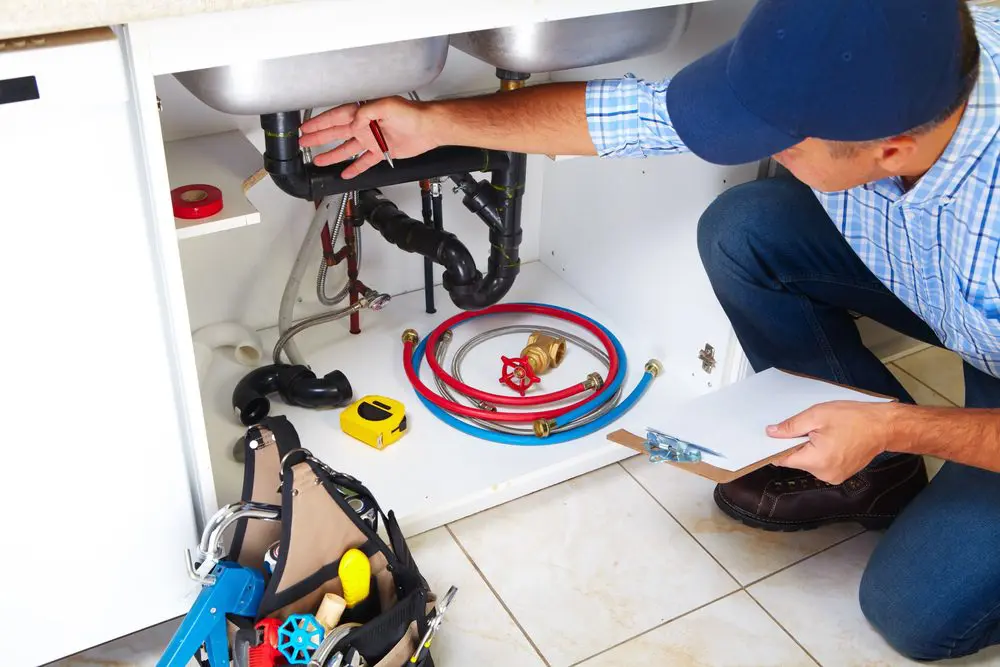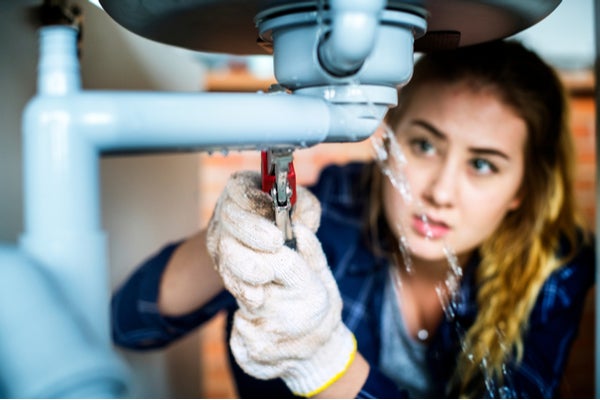6 Surprising Habits Which Affect The Household Plumbing Fixtures
6 Surprising Habits Which Affect The Household Plumbing Fixtures
Blog Article
Everybody may have their personal rationale involving Ways to Make Your Pipes Last Longer.

The key to long lasting appliances, unsurprisingly, appertains maintenance. There's no set rule that can guarantee your plumbing home appliances a lengthy wear, however you can prevent unnecessary damages as well as fixings by staying clear of bad plumbing practices.
You should quit doing these 6 points else you'll keep calling your plumber over for minor faults.
Flushing everything
Yes, your toilet drain leads to the drains, but that doesn't mean you ought to dump just anything down the tubes. Many 'flushable' materials are really great obstruction starters, as an example floss. Asides keeping evident non-flushable materials like cords as well as plastics out of your commode, you should also stay clear of flushing cotton buds, menstruation products, wipes, daipers and also condoms down the commode drainpipe.
DIYing everything
With plumbing, a stitch in time actually does conserve 9. You can stop a fullblown plumbing emergency by calling your plumber at the right time.
You might have found out a few plumbing hacks from your daddy, however you should know where to draw the line and call a professional. As an example, you may have the ability to deal with a clog on your own, yet you should not try to alter a pipeline. You could inequality pipelines or overtighten a bolt, causing more injury and damage than you believed. Calling a plumber is a secure and also affordable decision.
Utilizing excessive drain cleaner
Making use of a drainpipe cleaner greater than one or two times a month is an indication that something significant is taking place within your pipelines. Currently, instead of dealing with the main problem, you choose a quick fix; a carbonated drainpipe cleaner. Rightfully, a drainpipe cleaner will care for the obstruction, but at what cost?
The chemicals in a drain cleanser can quicken the rust of your pipes. Add that to whatever underlying issue is triggering the clog and you might have to a significant problem on your hands.
If you experience too many clogs, call your emergency plumber instead of using a drain cleaner.
Putting oil in the sink
We understand effectively getting rid of oil after a hearty meal is a pain. But merely putting it away can do long-lasting damage to your pipes. "The fat and oil can obstruct your drainpipe terribly enough to force you to call a plumber," explains Dawson. "Plumbing functions best when it's well looked after-- not abused with grease."
Not changing your dishwasher tubes
One very easy method to guarantee that you utilize your dishwasher for years is to change the pipe a minimum of once in 5 years. This likewise obtains washing machine tubes.
Gradually, food bits, soap and oil can develop clogs within your pipelines. Changing them on schedule will certainly stop any presure accumulate that can harm the internal operations of your dish washer or washing equipment.
A strengthened steel braided tube does a terrific job of lengthening your device's usage time.
No winter season precautions
Severe climate condition are bad for your pipelines, particularly if they're constructed from steel. You must insulate your subjected pipelines, as well as your water container, even if you have a water heater. You need to likewise switch off your yard hose pipe shutoff and any other exterior water channels. These channels are electrical outlets for cold; you pipelines can begin to freeze from outdoors if you don't.
Ways That Hard Water Affects Your Plumbing And Appliances
CLOGGED DRAINS
Calcium and magnesium from hard water go beyond the drain screen that you clean. Each time water passes through the drain screen, the minerals attach to the sides of the pipes and other hard water deposits. As you continue to use the drain, more of the minerals attach to these deposits, eventually clogging the drain. Most drain cleaners remove only a small amount of the minerals, so the drain continues to run slow and back up water in your sinks, tubs, and showers.
DECREASED WATER FLOW
Do you have a faucet that runs slow even when you increase the water flow at the valve? Hard water deposits not only affect how water runs out of your home but also how water is delivered to your faucets. When calcium, magnesium, and minerals build up in pipes, it slows the flow of water and also builds up pressure inside the pipes that causes a backflow of water.
CORROSION
Calcium and magnesium have properties that are destructive to certain types of metal, many of which are used for plumbing in older homes. The minerals slowly break down the metal in your pipes. This can cause leaks, breaks, and even discolored water. If the corrosive section of the pipe is not repaired and the hard water deposits removed, entire sections of your plumbing may disintegrate. You may end up replacing a large portion of your plumbing system. Corrosion can happen on any metal surface, not just your pipes. Calcium and magnesium can also cause corrosion on your faucets, drains, valves, appliances, and fixtures.
REDUCED WATER QUALITY
You rely on your plumbing system to deliver clean water for cooking, washing your clothes, bathing, and many other daily tasks. Hard water has small particles of minerals in it. The water is safe to drink, but it is not ideal for your appliances. The minerals interfere with how soaps and detergents work to remove dirt, food, oils, and other substances. As a result, you must use more cleaning products, and your appliances have to work harder to clean dishes and clothes.
BROKEN PIPES AND LEAKS
Broken pipes and leaks from hard water happen in two ways. First, hard water is corrosive to the materials that are used in older homes. Eventually, minerals eat through the pipe and create a small opening in the side of the pipe. The opening grows larger and larger until you have a major leak on your hands. Second, the mineral deposits inside the pipes prevent water from flowing through efficiently. If the water is pushed through the plumbing at the same volume, pressure builds up, and eventually, the pipes and connections fail.
ENERGY EFFICIENCY
Hard water and mineral deposits in your plumbing affect the energy efficiency of your appliances, even the older models that do not meet modern standards. When you find a white residue on your dishes or your clothes don’t feel clean, you may find yourself running the wash cycle a second time. This requires more energy use and raises your utility bills. Some newer high-efficiency models of dishwashers and washing machines have sensors that detect when items are clean. Hard water deposits on the dishes or clothes will trigger the sensors and cause the appliance to run longer.
Another way that hard water affects your budget is the investment you make in products for hard water deposits. Rather than spending your money on higher utility costs and household products, invest in a water softening system from Beyer Plumbing Co. to prevent the problems of hard water.
WEAR AND TEAR
Hard water deposits build up on the connections, drains, and jets in your washer or dishwasher that circulate the water and clean your clothes and dishes. As a result, water may collect inside your appliances, creating the ideal environment for corrosion, mold, and other damaging substances. The components break down sooner, and your appliances may not last as long as expected. In some cases, the lifetime of an appliance may be reduced by three or four years simply due to hard water deposits. Using soft water in your appliances ensures that you get the maximum return on your investment.
https://beyerplumbing.com/9-ways-that-hard-water-affects-your-plumbing-and-appliances/

I was brought to that editorial on Don’t Let an Earthquake Damage Your Plumbing from a friend on our other website. Loved our blog entry? Please share it. Let someone else find it. I take joy in reading our article about Can Hard Water Ruin Your Appliances?.
Book A Service Report this page